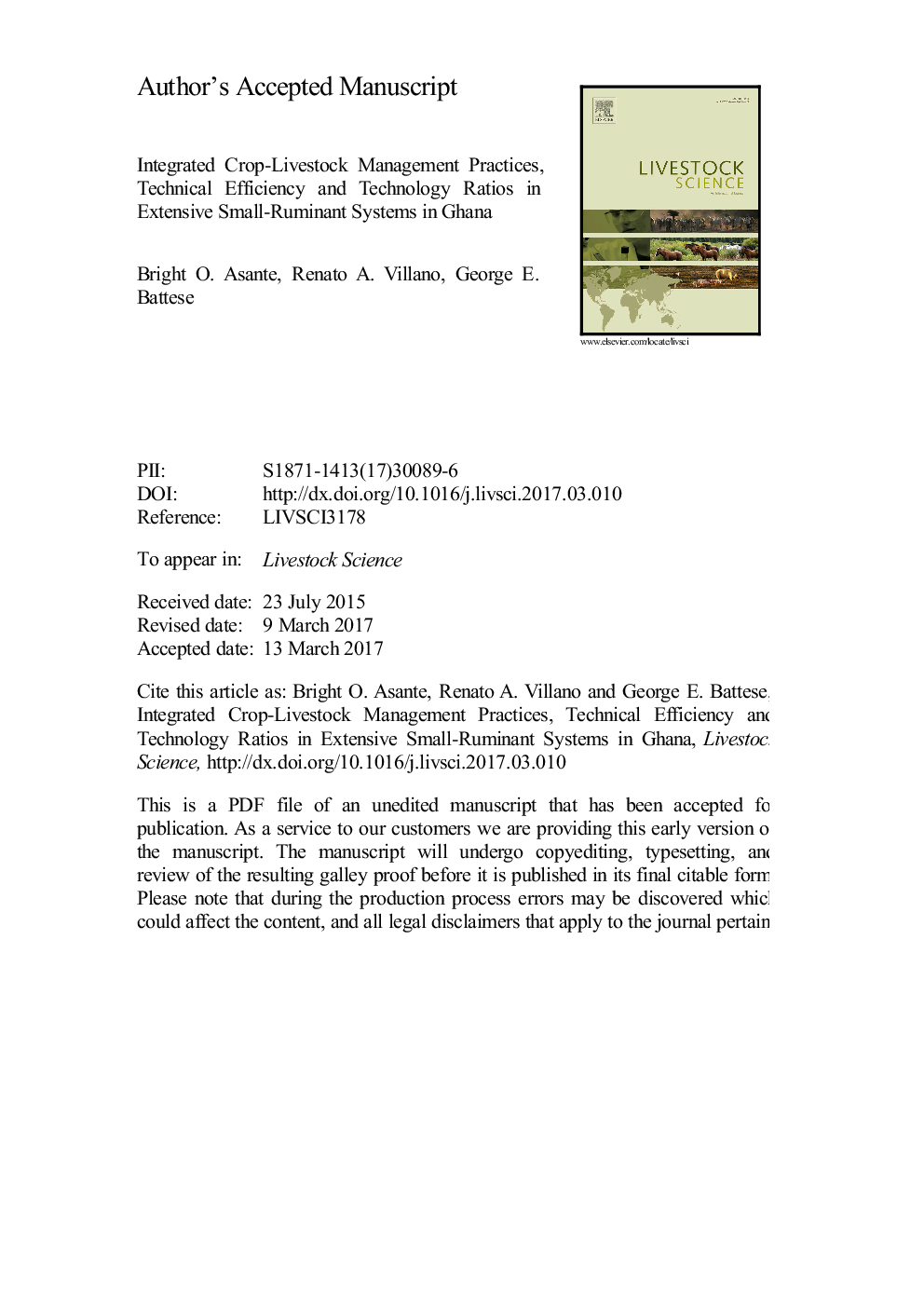ترجمه فارسی عنوان مقاله
شیوه های مدیریت یکپارچه محصولات دامداری، بهره وری فنی و تکنولوژی در سیستم های کوچک و موروثی گسترده در غنا
عنوان انگلیسی
Integrated crop-livestock management practices, technical efficiency and technology ratios in extensive small-ruminant systems in Ghana
| کد مقاله | سال انتشار | تعداد صفحات مقاله انگلیسی |
|---|---|---|
| 100475 | 2017 | 38 صفحه PDF |
منبع

Publisher : Elsevier - Science Direct (الزویر - ساینس دایرکت)
Journal : Livestock Science, Volume 201, July 2017, Pages 58-69
ترجمه کلمات کلیدی
یکپارچه سازی روش های مدیریت دامداری، کارایی فنی، نسبت متا تونولوژی، گسترده سیستم های کوچک گرسنه،
کلمات کلیدی انگلیسی
Integrated crop-livestock management practices; Technical efficiency; Metatechnology ratio; Extensive small-ruminant systems;

